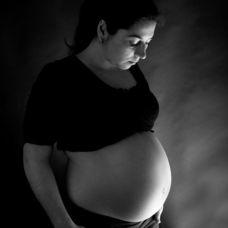Home Birth May Be Best for Low Risk Pregnancy

Here in the US, while rates of homebirth are constantly rising, there's still a large stigma attached that suggests that it's unsafe, even for normal, low-risk pregnancies. Heck, there are some people who have said (very wrongly) that elective c-sections are safer than home births. Eek!
More from The Stir: Unplanned Homebirths Aren't As Scary As They Look on TV
So I'm crushing a little on the University of Oxford Dr. Peter Brocklehurst. He said, "Birth isn't an abnormal process, it's a physiological process. And if your pregnancy and labor is not complicated, then you don't need a high level of specific expertise."
His study showed that 50 percent of women were in no more danger when having a home birth than if they gave birth at a hospital.
Yes, this study was in Britain, but since we're all human, American moms -- this means you too. However, they do point out that in their maternity system, most births (60 percent) are attended by midwives, and birthing centers are much, much more common. Here in the US, not only are most of our births in hospitals, but training of midwives varies state to state. Some states don't even have any regulations on teachings. So a British midwife may be trained in many more methods than an American nurse-midwife attending an OB. We also have fewer birth centers in America, which could be why.
More from The Stir: Pregnant Performance Artist Pulls off Live Birth
The study looked at 64,500 mothers, all low risk (no twins or needed c-sections), divided relatively evenly between hospital, home birth, and free-standing birthing centers, they found there was almost no difference in the health of the baby with where the mother gave birth. Of the women who did transfer to a hospital, only 10 percent were because of fetal distress. The rest were because of maternal fatigue or the desire for an epidural after a long labor -- 45 percent of first time mothers transferred, but only 12 percent of experienced moms did, showing that it's more of a "faith in your body and ability" issue than anything.
A slightly higher risk of complications for first-time home birthers was also noted, but those risks also disappeared with subsequent birthing moms, so again, maybe education of the process or ability to relax has something to do with it?
But a biggie -- more than 11 percent of the low-risk women who chose a hospital ended up with a c-section, compared to 2.8 percent of the women who birthed at or started at home. That kind of number is one of the reasons many women choose home birth.
Unlike the American College of Obstetrics and Gynecology who is staunchly anti-home birth, the Royal College of Obstetricians and Gynocologogists states that they approve of appropriately selected home birth. Very cool.
Really, I'd like to see our country, instead of demonizing things, look instead to further proper education so those things can be intelligently supported. There are a lot of countries out there with much better birth ratings than we have, so I'm more than willing to look to them for advice. So far, many of these countries think that home birth, or birthing centers, are not only fine but even appropriate and perfectly safe for at least half of women, who are considered "low-risk," or what I like to call typical ... or even normal. That said, if you CHOOSE a hospital, more power to you -- but don't be scared into that choice.
Do you think home birth is safe for "low risk" women?
Image via davhor/Flickr
Written by Christie Haskell on CafeMom's blog, The Stir.
More from The Stir:
Miracle Twins Born From One Mom With Two Uteruses
Does Wanting a Girl, But Having a Boy Make You an Unfit Mother?
